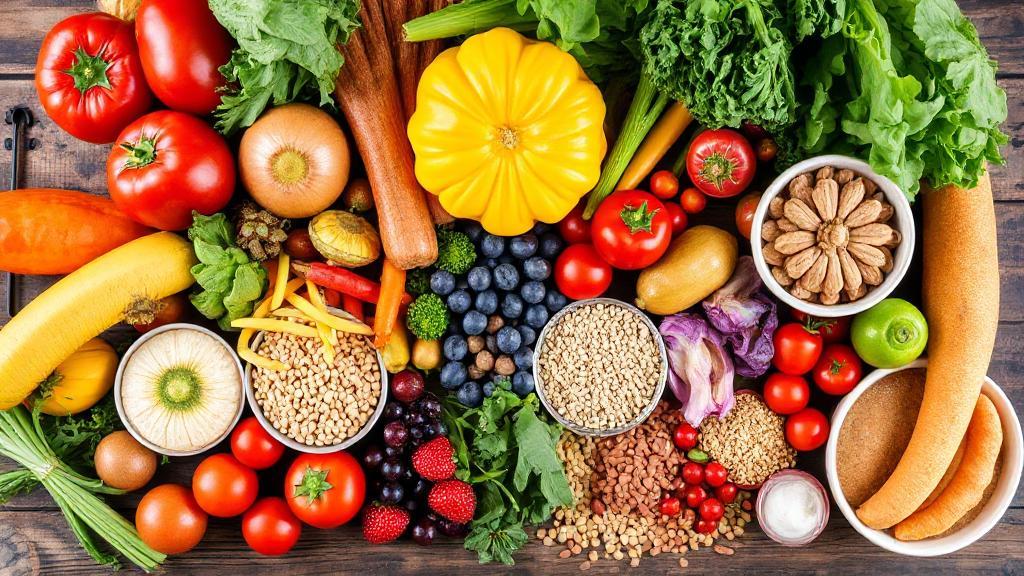Understanding Gut Inflammation
Gut inflammation is a common and complex issue that can manifest as digestive discomfort, bloating, pain, and even more serious conditions like Inflammatory Bowel Disease (IBD) and Irritable Bowel Syndrome (IBS). Chronic inflammation in the gut is not only linked to digestive problems but can also affect mental health, immunity, and overall well-being. The causes are multifactorial, including poor diet, stress, sleep disturbances, medication use, and imbalances in the gut microbiome.
To address this, a holistic approach combining dietary, lifestyle, and sometimes medical strategies is most effective. Below, we outline evidence-based ways to naturally reduce gut inflammation and support digestive health.
Dietary Strategies to Reduce Gut Inflammation
Embrace an Anti-Inflammatory Diet
A cornerstone of gut health is adopting an anti-inflammatory diet, which focuses on whole, unprocessed foods and minimizes known inflammatory triggers. For a deeper dive, see Effective strategies to reduce inflammation naturally.
Foods to Include:
- Fruits and Vegetables: Rich in antioxidants and fiber. Berries, leafy greens (spinach, kale), broccoli, and sweet potatoes are especially beneficial.
- Healthy Fats: Omega-3 fatty acids from fatty fish (salmon, sardines, mackerel), flaxseeds, chia seeds, walnuts, olive oil, and avocados.
- Fermented Foods: Yogurt (with live cultures), kefir, sauerkraut, kimchi, and kombucha provide beneficial probiotics. Learn more about top probiotics for improving gut health.
- Whole Grains: Oats, quinoa, and brown rice offer fiber that supports gut health.
- Spices: Turmeric (curcumin), ginger, and cinnamon have well-documented anti-inflammatory effects.
Foods to Avoid:
- Processed Foods: High in sugar, unhealthy fats, additives, and preservatives.
- Refined Carbohydrates: White bread, pastries, and sugary snacks.
- Red and Processed Meats: Linked to increased inflammation.
- Artificial Sweeteners: May disrupt gut bacteria in some individuals.
- Alcohol and Excessive Caffeine: Both can irritate the gut lining.
For more on improving your gut through diet, see Effective strategies to improve your gut health.
Support Your Gut Microbiome
A balanced gut microbiome is essential for controlling inflammation. Strategies include:
- Probiotics: Found in fermented foods or as supplements, probiotics help restore healthy gut bacteria. For IBS-specific strains, see The best probiotics for managing IBS symptoms.
- Prebiotics: Non-digestible fibers that feed beneficial bacteria. Sources include garlic, onions, leeks, asparagus, bananas, and whole grains.
- Limit Antibiotic Use: Only use antibiotics when necessary, as they can disrupt gut flora.
Explore more about effective ways to improve digestion naturally.
Lifestyle Adjustments for Gut Health
Manage Stress
Chronic stress disrupts the gut-brain axis and increases inflammation. Effective stress-reduction techniques include:
- Mindfulness Meditation: Shown to reduce inflammatory markers and improve gut symptoms.
- Yoga and Deep Breathing: Calm the nervous system and support digestive healing.
- Regular Exercise: Moderate physical activity (150 minutes/week) reduces systemic inflammation and supports gut motility. For details, see CDC Physical Activity Guidelines.
Prioritize Sleep
Poor sleep can worsen inflammation. Aim for 7–9 hours of quality sleep per night. Tips:
- Maintain a consistent schedule.
- Create a relaxing bedtime routine.
- Optimize your sleep environment (cool, dark, quiet).
Stay Hydrated
Adequate hydration supports digestion and helps flush toxins. Aim for at least 8 cups of water daily, more if active or in hot climates.
Avoid Smoking and Limit Alcohol
Both smoking and excessive alcohol intake can damage the gut lining and disrupt the microbiome, increasing inflammation.
Supplements and Natural Remedies
While a food-first approach is best, certain supplements may help reduce gut inflammation. Always consult a healthcare provider before starting new supplements.
- Curcumin (Turmeric): Potent anti-inflammatory properties.
- Omega-3 Fatty Acids: EPA/DHA from fish oil can lower inflammation.
- L-Glutamine: Supports gut lining repair.
- Probiotics: Multi-strain formulations are often most effective.
- Zinc Carnosine and Aloe Vera: May help protect and heal the gut lining.
For more, see Natural ways to detox your body safely and effectively.
Identify and Eliminate Food Sensitivities
Food sensitivities (e.g., gluten, dairy, soy, eggs) can trigger gut inflammation. An elimination diet or working with a registered dietitian can help identify problematic foods.
When to Seek Medical Advice
If you experience persistent gut symptoms such as:
- Chronic abdominal pain or cramping
- Persistent diarrhea or constipation
- Bloody stools
- Unexplained weight loss
- Severe bloating
consult a healthcare professional. These may indicate underlying conditions like IBD, celiac disease, or infections that require specific treatment. For chronic pain management, see Effective strategies for managing chronic pain.
A Holistic Path to Gut Wellness
Reducing gut inflammation is a journey that involves dietary changes, lifestyle modifications, and sometimes medical intervention. Consistency is key—small, sustainable changes often yield the best long-term results. For more on boosting your immune system, visit Natural ways to boost your immune system and Effective ways to boost your immune system naturally.
For further reading, explore Effective ways to reduce bloating and improve digestion.
Remember: Healing your gut takes time and patience. Celebrate small victories and consult healthcare professionals as needed for personalized guidance.
